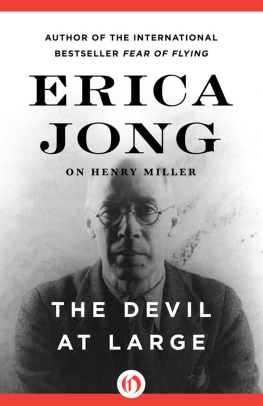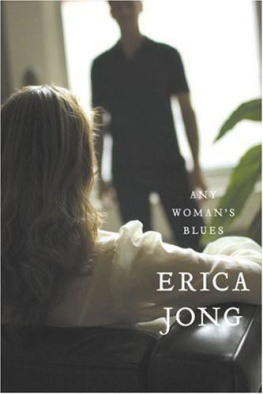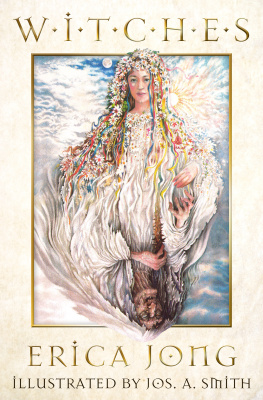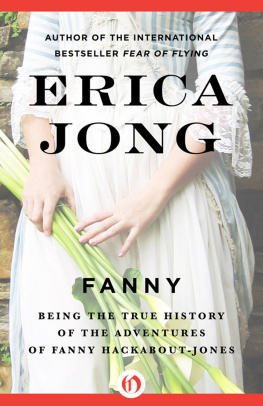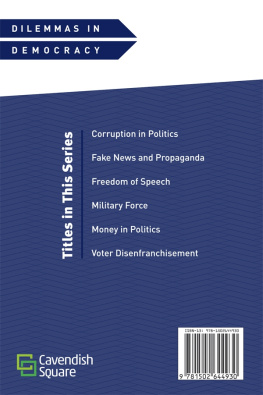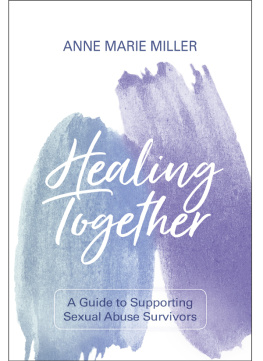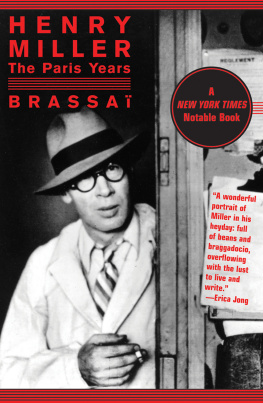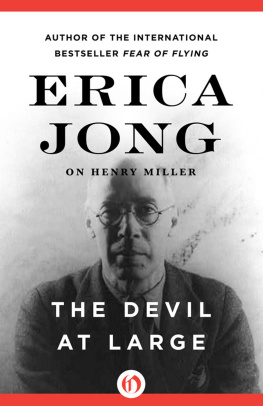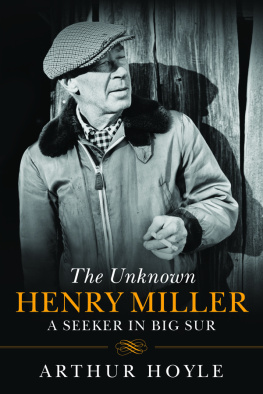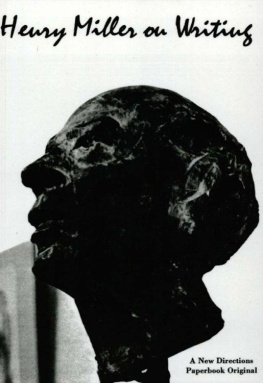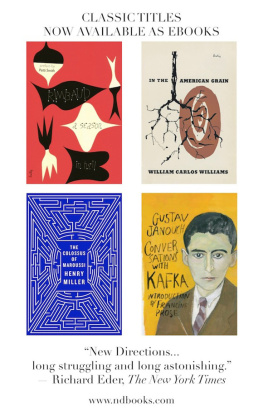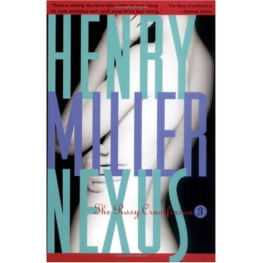
The Devil at Large
Erica Jong on Henry Miller
Erica Jong

For Georges Belmont
and to the memory of
Hortense Chabrier
Henrys gifts,
dear friends
Because when you get down to the basic Henry Miller I think youll find not that youre dealing with a sex addict or an adventurer, youre dealing with a metaphysician, a juggler not a juggler but a magician, I think I like all thats very serious always looking for the secret of life
HENRY MILLER TO ERICA JONG, 1974
These novels will give way, by and by, to diaries or autobiographiescaptivating books, if only a man knew how to choose among what he calls his experiences, that which is really his experience, and how to record truth truly.
RALPH WALDO EMERSON
Introduction
Why Henry Miller?
WHY SHOULD WE CARE about Henry Miller today and why should there be another book about him? Because we are no freer today than we were in 1934, when he published Tropic of Cancer, in many ways we are more enslaved. Because his message has still not been heardand if he were to be alive today, we would probably be equally oblivious to what he is trying to tell us. (Perhaps we would be even more resistant, because we falsely believe we have dealt with our sexual fears and phobias.)
Miller remains among the most misunderstood of writersseen either as a pornographer or a guru, a sexual enslaver or a sexual liberator, a prophet or a pervert. All the questions his life and oeuvre raise about the role of the writer in society, the impact of books on sexual politics, the impact of sexual politics on books, the threat of censorship to free speech and written expression are, unfortunately, as fresh today as they ever were.
What is the function of art in a society that has little use for anything but the most simple-minded entertainment or insidious propaganda? How does free speech survive? How does literacy keep a society free? How is our sexuality related to our intellectual honesty, our politics, our art? Millers work addresses these questions. And they are questions that desperately need answering in our time.
We do not see our society as one that is squashing freedom of expression on all sides because the very nature of expression has changed, hence the nature of censorship has changed. Our dominant forms of communication are visual, not verbal, and we seldom wish to analyze how the information that appears before our eyes as news, as entertainment, as politics, as public affairs, shapes our world and everything we think about it.
Our access to information and entertainment (infotainment is a telling word) is so skillfully manipulated that we do not even see it as such. We flatter ourselves that we have free choice. We flatter ourselves that we are free. The truth is that we are already in a sort of Brave New World in which we are drugged by our distractions and by those who select them for us.
The fact that we are as oblivious to this manipulation as our puppetmasters wish us to be will anger some of us and provoke hearty denial in others. The most skillful manipulation looks like choice to those who are targeted. We may like to think we have free choice, but the truth is we can only choose between A and B. If, as Marshall McLuhan said, the medium is the message, then our addiction to visual images has already paved the way for our enslavement. It only remains for some unborn Hitler to learn how to use our pleasures to enslave us totally. As yet we use our media only for selling thingsincluding, of course, political candidates. What will happen when someone masters the art of selling souls?
Henry Miller foresaw our world of restricted opportunity and widespread mediocrity and railed against it before it arrived. He understood that we would rather relegate sex to a commodityalternately condemned and slavered overthan try to understand its deep and pervasive power in our lives. He became, like so many prophetsfrom Jesus to Savonarolathe victim of his own predictions. He railed against Americas sexual schizophrenia and he was rewarded by being banned, burned, pirated, deprived both of his livelihood and his power to reach his potential audience. He railed against the conformity and ugliness of Americas treatment of the nonconformist, the poet, the artist, and he became the victim of that treatment. Ironically, he was silenced first by close-minded puritans and then by open-minded feminists pursuing sexual honesty and gender-fairness. It fell to him to both express and to exemplify the role of the creative artist in a world that has increasingly little use for dissent, for art (except as a saleable item), for honesty, for any kind of entertainment or information but that which lulls the senses or sells a productfrom a president to a war to a pair of jeans.
The worst of all this is that the lulling and the selling are often indistinguishable from each other. The airconditioned nightmare has come to be our waking realityand we are all semisleepwalking to the flickering of our TV and computer screens.
Henry Miller predicted all this. Henry Miller never stopped fighting against our somnolence. Henry Miller still matters because he still has the power to wake us up.
There is a rumor abroad in literary America today that sex isnt sexy anymore. We have done it alland now with the tragedy of AIDS and a recalcitrant recession, the human hormones are exhausted.
I find this wishful thinking on the part of those who hoped sex would solve all their problems and, finding that it wouldnt, decided to rejoin the religion of their ancestors: puritanism.
The sexual revolution was deeply superficial: it never eradicated either guilt or anhedonia. Given the excuse of a tragic epidemic, dyed-in-the-wool puritans masquerading as pagans decided that sex was boring and that writers like Henry Miller were therefore irrelevant. These trimmersa lovely eighteenth-century term meaning those who cut their consciences to the timesnever understood Eros at all. Eros is life force and if you pronounce it boring, you inadvertently announce your own death. Perhaps we dont believe that sexual freedom will turn the universe from war to peacebut only the very young ever believed that, anyway. As we grew older, we realized that life is far more complex. Sex is not dead in the human psyche, it is only looking for new forms. The devastation of AIDS has given the zealots and vigilantes the excuse they needed to call again for censorship. But their motives are political, not sexual. The new slavery takes many forms: political correctness in the case of anti-First Amendment, pro-censorship feminists, supposed family values in the case of right-wing zealots. The message is the same: they want to tell us what to do and feel.
If Eros is life force, then censoring Eros is death. Henry Miller matters because he understood this; he demanded life more abundant above all. He did not use Eros promiscuouslyeven in his books. And he was not demanding that we do. What he was demanding was that we understand the connection between Eros and life. And we have still not understood. That is why I wrote this book.
I always knew it was to be an unconventional bookpart memoir, part critical study, part biography, part exploration of sexual politics in our time. But I did not anticipate how difficult the task was to become or how much of my own bag as a writer I would have to unpack before I could begin to unpack Henrys bag.
Next page
